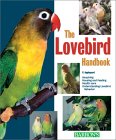The Educated Bird Buyer – Part II
Last week we discussed pet stores and bird marts as sources for birds. There are a number of other places where you can find a pet or breeder bird. You can buy directly from a breeder, from classified ads (resale birds), or adopt a bird from a sanctuary. Here are some tips on these sources.Direct from Breeders
This is often one of the best places to buy a bird. You have direct contact with the person who bred the bird so you can check out its genetic background if you’re planning to breed the bird. You can get more information on that particular species since the breeder generally knows more about the species they are breeding than does a pet store worker who only sees the breed when they have them to sell.
Issues to Consider
Is the aviary closed? Don’t be put off by a closed aviary. In truth, this is the safest type of aviary as long as they give you a health guarantee. The reasoning behind a closed aviary is that the fewer exposures to outside influences, the less likely it is that the birds will be exposed to disease. You might think your birds are healthy, but they could be silent carriers of PBFD psittacosis, or other diseases. You can carry feather dust on your clothes and shoes into a clean aviary. Generally, closed aviary means the breeders keep the same birds in the same aviary space and they do not bring in other birds. If new birds are purchased for breeding, they will quarantine for two months and get a veterinary exam that includes a battery of blood tests to make sure the new bird won’t infect the rest of the flock. Even if you don’t own a bird, if you visit a pet shop with birds then go into a closed aviary with the same clothing and handle birds (particularly baby birds), you are breaking the closed aviary guidelines. In this day and age these types of guidelines are essential.
How many times a year do they breed each pair? If they are breeding pairs more than three times a year, they might be overextended. This is very hard on the birds and is only done by people who need those four or five extra babies to make ends meet. It is not a humane or ethical breeding practice. Some do it by creating a constant Spring environment in their aviaries. Needless to say, everyone needs a rest from forming, laying, incubating, hatching, and feeding young!
Can they give references? Generally breeders can give you the names of people who have been happy with their birds.
Buying from breeders at a distance has both pros and cons. Be wary of brokers and others who are merely moving birds from one person to another unless they have excellent references and a solid reputation.
Re-Sale Birds
You may see advertisements in a local recycler/classified newspaper for birds. You may also find birds for re-sale on consignment at pet stores. While some of these birds may be perfectly good choices, be very careful about acquiring a bird with preexisting behavioral or health issues. Sometimes a person purchases a parrot and has plenty of time for it, then they have children, get a new job, and other responsibilities that take away the time they need for their bird. Generally, people who have a genuine interest in their bird’s well-being will try to “place” their bird in a loving home rather than try to make back the money they invested in the bird. They will ask for a reasonable purchase price and often will include the bird’s cage and toys. Ask questions! If a seller is moving to another country, just had a baby, or is too ill to care for the bird, chances are it will be fine. If they have neglected the bird for years and left it in a dark closet to shut it up, you are going to have a handful. If you have the kind of determination and patience it takes to reach such birds, more power to you. It will be a blessing for these creatures to find someone like you. But don’t lie to yourself. If you can’t devote the extra time and care to this bird, don’t take it on then find yourself needing to abandon it in a few months. (If you find a bird in truly despicable conditions, there are rescue organizations who can help. Contact your local animal welfare group or one of the many bird rescue organizations online and try to find a way to save the bird. Once you see a living creature in distress, it becomes your responsibility too and you can’t just look the other way.)
Sanctuary or Rescue Birds
There are many rescue operations and bird sanctuaries around today. They are a welcome sight since they are sorely needed, but still a sad testament to the fate of many companion birds. They give fuel to my passion about discouraging people from buying parrots unless they are absolutely sure they know what they’re getting into. Abandoned birds can sometimes be delightful pets, but beware of birds that are already beyond repair and need special care and treatment. This includes feather pluckers who can easily cross the line into vicious self-mutilation. This can entail many emergency trips to the veterinarian to stop bleeding that’s out of control. A bird that is nervous around humans can calm down once it finds itself in a stable environment, but you need to be especially patient. Imagine what it would be like to suddenly lose your mommy, daddy, friends, and home and end up in a totally strange place. It is unsettling for these birds to say the least. Many exotic bird rescue organizations will educate new owners and prepare them for ownership of one of their sanctuary birds.










